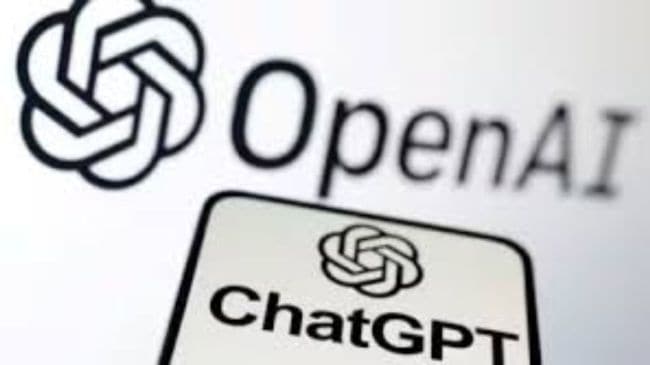Opinion ‘Please’, ‘thank you’ are costly expressions for AI. Are we putting a price tag on kindness?
Do we want a world where politeness is discouraged because it’s inefficient, where creativity is algorithmic, and kindness is rebranded as a luxury?
 DNPA has strongly advocated for a regulatory framework to safeguard rights in an evolving digital environment. (Representative image)
DNPA has strongly advocated for a regulatory framework to safeguard rights in an evolving digital environment. (Representative image) When OpenAI CEO Sam Altman recently responded to a viral post on X (formerly Twitter) questioning how much electricity costs are incurred by people saying “please” and “thank you” to ChatGPT, his reply was brief but revealing: “Tens of millions of dollars well spent”.
On the surface, this may have appeared to be tongue-in-cheek. But dig deeper and you’ll find a troubling sign of the times — a glimpse into how artificial intelligence, a tool designed to aid humanity, is now quietly reshaping what it means to be human. The cost of AI isn’t just measured in watts and dollars — it’s measured in what we lose as humans.
Once, we feared AI would kill jobs. Now, we already know that AI has disrupted industries. In recent years, artists, designers, writers, and musicians have raised concerns about how AI-generated content has replaced their craft. Creative industries, which once thrived on personal expression and emotional nuance, are now forced to coexist with machines that mimic style by using codes but lack soul in the simulation. What began as a concern about copyright and job loss has grown into a much bigger existential question: What happens to the human spirit when even basic human decency — kindness, politeness — is being framed as inefficient?
Altman’s statement reveals a new front in this silent cultural shift. If courtesy is viewed as a computational cost, what does that say about the direction we’re marching in?
To get to the deeper implications, we must first examine what those simple words —”please” and “thank you” — actually represent. They’re not just linguistic habits or polite formalities. They are expressions of respect, humility, and shared humanity. We say “please” to show that we don’t take others’ time or service for granted. We say “thank you” to acknowledge effort, no matter how small. These are tiny rituals that build connections and remind us that we’re part of a social world, not just a transactional one.
When users speak this way to AI, it’s not because they believe the machine deserves respect — it’s because they want to maintain their own. It’s about preserving the habit of kindness, even when the recipient is not a living being. It’s also a way to humanise the experience, especially when AI systems are increasingly taking the place of people in customer service, creative advice, education, and mental health support.
Yet in an AI-dominated world that values speed, precision, and scalability, even these small courtesies are now framed as inefficiencies. Altman’s remark mirrors an uncomfortable reality: We’re entering a stage where not just creative labour, but emotional behaviour itself is being measured by its economic and computational weight.
And that should worry us.
Because here’s the dilemma: If something as seemingly trivial as politeness is seen as a “cost,” what happens when more significant emotional expressions — empathy, patience, vulnerability — enter the equation? Will AI tools start nudging users toward more “efficient” communication by stripping these out? Will platforms begin filtering for speed and brevity at the expense of sincerity and warmth?
If this trajectory continues, the problem won’t be that machines become more human-like — it’s that the humans will become more machinelike.
Already, there are signs of this cultural shift. On social media platforms and messaging apps, communication has been reduced to acronyms, emojis, and automation. Customer service bots handle complaints with templated empathy. Virtual assistants schedule our lives with clinical detachment. And in all this, we’re slowly being trained to suppress the very things that make communication rich: Nuance, feeling, and human unpredictability.
The irony is bitter: AI, which began as a marvel of human ingenuity, is now subtly shaping the boundaries of human expression. The goalposts of what is “normal” communication are shifting — not through force, but through subtle cues embedded in the systems we use every day.
Yes, AI has the potential to revolutionise medicine, climate science, education, and accessibility. But if we’re not careful, the cost of AI will be in diminished empathy, reduced human agency, and an impoverished emotional vocabulary.
There’s also an environmental angle to this debate. A Goldman Sachs report estimated that a single Chatgpt-4 query consumes about 2.9 watt-hours of electricity, 10 times that of a typical Google search. Multiply that by a billion queries per day, and the energy costs become staggering. But here’s the catch: Is it really the extra “thank you” that’s burning the planet, or is it our insatiable desire to automate everything — even the act of thinking? Do we want a world where politeness is discouraged because it’s inefficient, where creativity is algorithmic, and where kindness is rebranded as a luxury? Or do we want to safeguard the intangible values that make human life meaningful, even if they come with a price?
sudhanshu.mishra@indianexpress.com




